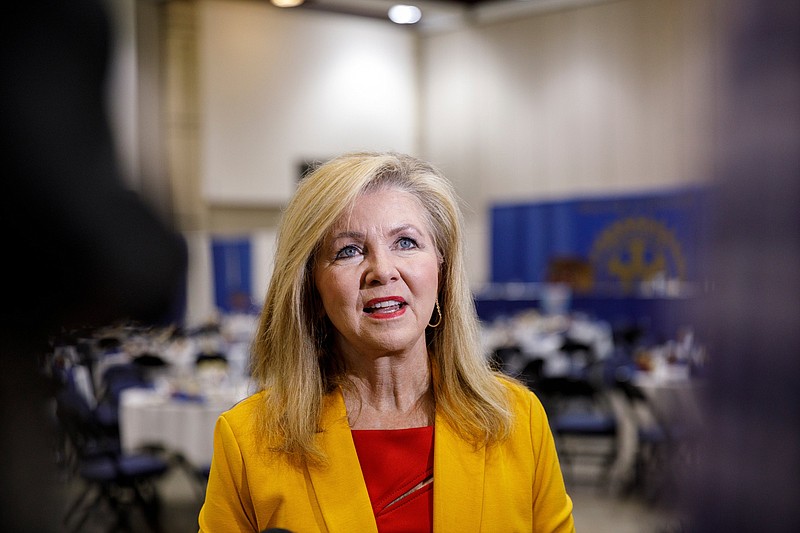NASHVILLE -- Amid growing tensions between the United State's and Iran over Thursday's shooting down of an unarmed U.S. surveillance drone in the Strait of Hormuz, U.S. Sen. Marsha Blackburn on Thursday denounced the Islamic Republican's action but also said she hopes a diplomatic solution is still within President Donald Trump's reach.
"This was not a provoked attack. It is an attack that Iran initiated," the Tennessee Republican senator said during a telephone conference call with Tennessee-based reporters. "There was no invasion in Iranian air space. This was in international air space and it was irresponsible for Iran to have attacked. ... This is something that could have injured civilians."
Blackburn also said "I continue to support of a diplomatic solution in these issues."
But in the meantime, she added, the U.S. "should and will continue maximum pressure with sanctions and arms sales to our regional allies to support their self defense."
Top Senate and House leaders were expected to be brief by White House officials later Thursday as U.S. officials charge the Islamic Republic's Revolutionary Guard shot down the drone.
The U.S. calls it an "unprovoked attack" with the drone over international waters. Iran charges the U.S. Navy RQ-4A Global Hawk "violated" its territorial airspace.
Asked where Trump is headed on the issue, Blackburn said "a diplomatic solution is something we would hope he could arrive toward with our allies in the region and with Iran. Keeping sanctions in place is something that is important, and we're going to continue to monitor that."
Earlier Thursday, former U.S. Army Gen. and CIA Director David Petraeus told NPR that U.S. Central Command officials "are not going to report something inaccurate. The question again is how clear, how precise can they show specifically where this was.
"Then," Petraeus said, "the question is does the president in particular, because he's been downplaying the previous attacks and so far the secretary of state [Mike Pompeo] has established a red line."
"The question here is this sufficient again to generate a response," Petraeus said. "And the Central Command commander I'm sure is asking a number of questions of his staff and in Washington trying to get a more precise understanding undoubtedly of the policy objectives of the maximum pressure campaign."
Petraeus described the situation as "a bit of Iran sort of feeling the edges. Someone said this morning we're doing the maximum pressure; they're doing the maximum provocations strategy."
Regarding the U.S. pressure campaign, Petraeus said "I want to know more specific objectives than say the 12 essentially demands that Secretary of State Pompeo gave last year.
"And so again, specifically what are we trying to achieve relative to say their nuclear program, missile program, support for Shia militia in Iraq and Syria and Yemen and Lebanon and so forth."
Contact Andy Sher at asher@timesfreepress.com or 615-255-0550. Follow on Twitter @AndySher1.
